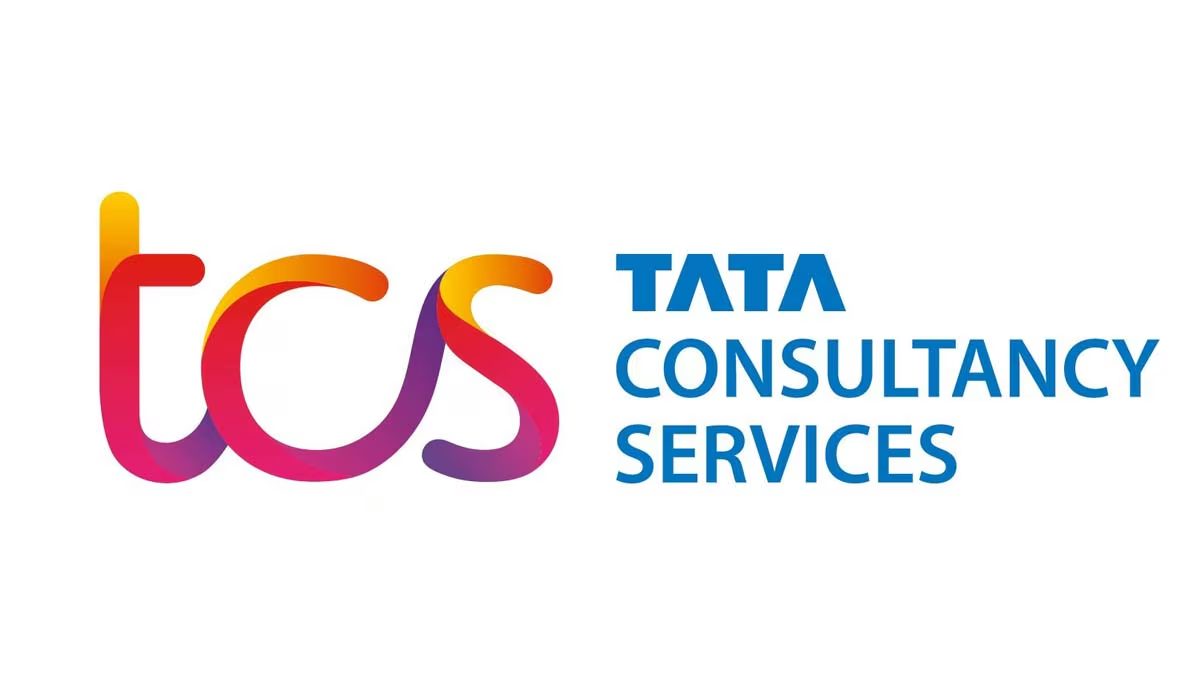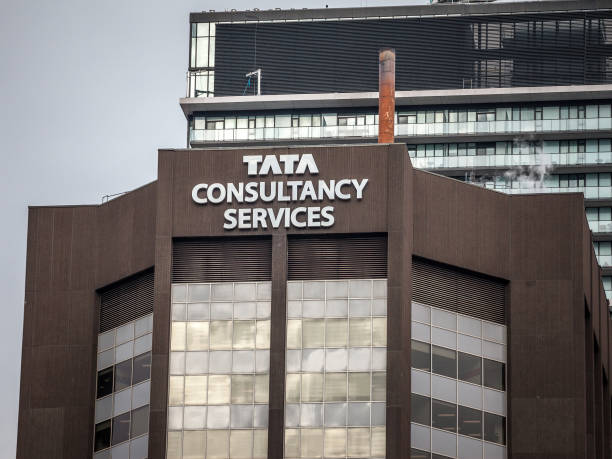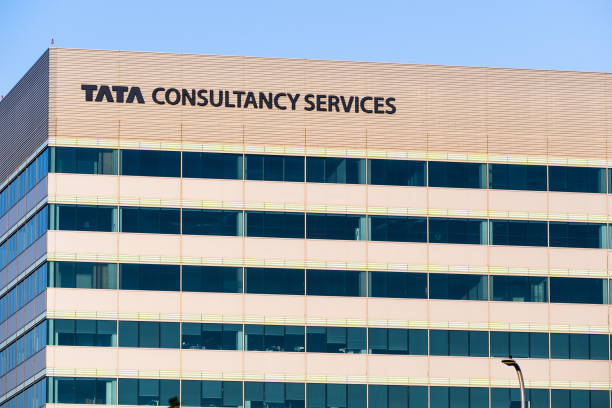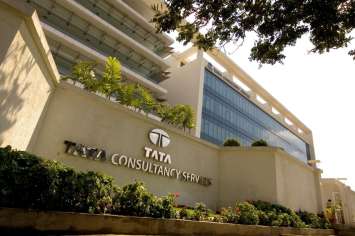
Tata Consultancy Services (TCS), India’s largest IT services provider, dominated business headlines throughout July 2025 with a series of significant announcements spanning workforce restructuring, artificial intelligence initiatives, financial results, and strategic partnerships. The Mumbai-based IT giant’s latest developments reflect both the challenges facing the global technology sector and the company’s aggressive pivot toward AI-led transformation, marking a pivotal period in TCS’s evolution as it navigates changing market dynamics while maintaining its position as a technology industry leader.
TCS Announces Major Workforce Reduction Amid AI Transformation
In one of the most significant announcements of July 2025, TCS revealed plans to reduce its global workforce by approximately 2%, affecting over 12,000 employees across middle and senior management positions. The decision, announced on July 27, 2025, represents one of the largest workforce reductions in the Indian IT sector in recent years and underscores the transformative impact of artificial intelligence on traditional technology services.
Strategic Rationale Behind the Layoffs
CEO K Krithivasan described the decision as “one of the toughest I had to take” during an interview with Moneycontrol, emphasizing that the move is part of TCS’s broader “Project Fluidity” initiative designed to create a more agile, future-ready organization. The workforce reduction primarily targets employees in middle and senior grades whose skills may not align with the company’s evolving AI-centric service offerings.
“We have been calling out new technologies, particularly AI and operating model-ready and agile,” Krithivasan explained. The company has committed to providing affected employees with notice period pay, severance packages, extended insurance coverage, and outplacement support to facilitate their transition to new opportunities.

Impact on Operations and Client Services
TCS leadership emphasized that the workforce restructuring will not impact service delivery to clients, with the transition being “planned with due care” to ensure operational continuity. The company, which maintains a global headcount of 613,069 as of June 2025, has been simultaneously investing in reskilling and redeployment programs for existing employees to align with next-generation technology requirements.
Q1 FY26 Financial Results Show Resilient Performance
Despite challenging macroeconomic conditions, TCS delivered solid financial performance in the first quarter of fiscal year 2026, reporting results on July 10, 2025, that exceeded market expectations in several key metrics.
Revenue and Profitability Highlights
The company reported consolidated net profit of ₹12,760 crore, representing a 6% year-on-year increase from ₹12,040 crore in Q1 FY25. However, revenue performance reflected ongoing market headwinds, with consolidated revenue reaching ₹63,437 crore, up 1.3% in reported currency but declining 3.1% in constant currency terms.
Operating margins remained robust at 24.5%, expanding 30 basis points quarter-on-quarter, while net margins stood at 20.1%. The company’s cash generation capabilities remained strong, with net cash from operations reaching ₹12,804 crore, equivalent to 100.3% of net income.
Deal Pipeline and Market Dynamics
TCS reported a robust total contract value (TCV) of $9.4 billion for Q1 FY26, with significant contributions from North America ($4.4 billion), BFSI sector ($2.5 billion), and Consumer Business ($1.6 billion). The company’s order book performance demonstrates continued client confidence despite broader market uncertainties.
CEO Krithivasan acknowledged the challenging operating environment, stating, “The continued global macro-economic and geo-political uncertainties caused a demand contraction. On the positive side, all the new services grew well. We saw robust deal closures during this quarter”.
Shareholder Returns and Dividend Declaration
Reflecting its commitment to shareholder value creation, TCS declared an interim dividend of ₹11 per share for Q1 FY26, with a record date of July 16, 2025, and payment date of August 4, 2025. This dividend represents a continuation of the company’s consistent capital return policy, with total dividends of ₹126 per share announced for the previous fiscal year.
Market Capitalization Battle with Bharti Airtel
July 2025 witnessed a dramatic shift in India’s corporate hierarchy as Bharti Airtel briefly surpassed TCS to become the country’s third most valuable company by market capitalization. On July 21, 2025, Airtel’s market cap reached ₹11.44 lakh crore, marginally exceeding TCS’s ₹11.42 lakh crore.
Stock Performance Divergence
The market cap repositioning reflected contrasting stock performance trajectories between the two companies. While Bharti Airtel’s shares surged 20.2% year-to-date through July 2025, TCS shares declined 22% during the same period. This 42 percentage point divergence highlighted investor sentiment shifts favoring telecom infrastructure over traditional IT services amid AI disruption concerns.
However, TCS subsequently reclaimed the third position by July 23, 2025, with its market capitalization reaching ₹11.50 lakh crore compared to Airtel’s ₹11.08 lakh crore. The volatility underscored the competitive dynamics among India’s most valuable corporations.
AI Leadership and Strategic Initiatives
TCS’s commitment to artificial intelligence leadership manifested through multiple strategic launches and partnerships throughout July 2025, positioning the company at the forefront of India’s AI transformation agenda.
SovereignSecure Cloud and India-Focused Solutions
On April 24, 2025, TCS launched three India-focused offerings designed to accelerate the nation’s AI-led transformation: TCS SovereignSecure Cloud, TCS DigiBOLT, and TCS Cyber Defense Suite. The SovereignSecure Cloud represents a fully indigenous, AI-integrated platform built to support mission-critical government and public sector operations while ensuring compliance with the Digital Personal Data Protection Act 2023.
The platform leverages TCS’s data centers in Mumbai and Hyderabad availability zones, ensuring sensitive data remains within India’s borders. This initiative aligns with the government’s digital sovereignty objectives and positions TCS as a key enabler of India’s technological self-reliance.
Strategic Partnership with MIT Sloan Management Review
TCS expanded its research capabilities through a collaboration with MIT Sloan Management Review, launching a comprehensive study on human-AI collaboration in enterprise environments. Announced on July 15, 2025, the research series explores how generative and predictive AI are reshaping decision-making across industries including manufacturing, retail, BFSI, healthcare, and energy.
The study introduces the concept of “Intelligent Choice Architectures” (ICAs), representing a paradigm shift where AI moves from advisor to architect in strategic decision-making processes. This research collaboration reinforces TCS’s position as a thought leader in enterprise AI adoption and human-machine collaboration.
Microsoft Partnership Expansion
TCS strengthened its cloud and AI capabilities through an expanded multi-year collaboration with Microsoft, announced on June 20, 2025. The partnership focuses on developing new AI and cloud solutions to accelerate client digital transformation, integrating Microsoft Copilot Studio, Azure AI Foundry, Microsoft Fabric, and Power Platform into TCS’s proprietary platforms including Cloud Exponence, Cloud Counsel, and ignio for AIOps.
Global Brand Recognition and Market Position

TCS achieved significant brand recognition milestones in 2025, reinforcing its position as a global technology leader and enhancing its market visibility across key regions.
Top 20 Global Technology Brand Ranking
Brand Finance’s Technology 100 2025 report ranked TCS among the top 20 global technology brands, with the company rising from 25th to 20th position year-on-year. The brand valuation reached $21.3 billion, establishing TCS as the second most valuable IT services brand globally.
David Haigh, CEO and Chairman of Brand Finance, attributed TCS’s ranking improvement to its “rapidly growing expertise in artificial intelligence” and strategic investments in brand-building through high-profile global sponsorships, particularly the TCS London Marathon.
Kantar BrandZ Global Recognition
TCS secured the 45th position in Kantar BrandZ’s Most Valuable Global Brands 2025 report, with brand value reaching $57.3 billion, representing a remarkable 28% year-on-year growth. This recognition places TCS among the world’s top 50 most valuable brands across all industries, highlighting its successful brand-building initiatives and market presence expansion.
The brand value growth was supported by TCS’s 95% aided brand awareness among business executives across 26 countries, a significant increase from 29% recorded in 2010. This demonstrates the company’s sustained investment in global brand building and market development.
Strategic Client Partnerships and Wins
TCS continued expanding its global client relationships through several high-profile partnership announcements and contract wins during July 2025.
Virgin Atlantic Partnership Extension
TCS and Virgin Atlantic announced a seven-year strategic partnership extension on June 3, 2025, building on their two-decade collaboration. The renewed agreement focuses on modernizing Virgin Atlantic’s core systems through AI-powered digital transformation, including the implementation of a Technology Command Centre that will serve as the operational nerve center for the airline’s technology operations.
The partnership leverages TCS’s proprietary platforms including TCS Cognix and TCS AI WisdomNext to enhance business agility, operational resilience, and customer experience across Virgin Atlantic’s global network.
Air New Zealand Digital Transformation
TCS secured a five-year partnership with Air New Zealand to modernize the airline’s digital infrastructure, announced in March 2025. The agreement covers over 600 applications and serves more than 15 million annual passengers, focusing on AI-driven automation and cloud technologies integration across critical airline functions including cargo services, disruption management, and crew operations.
Salling Group Retail Transformation
In June 2025, TCS partnered with Denmark’s largest retailer, Salling Group, for a comprehensive digital transformation covering 2,100 stores and 68,000 employees across six countries. The engagement includes brands such as Netto, føtex, Bilka, and RIMI Baltic, with TCS deploying its Cloud Exponence platform to enhance scalability and operational efficiency.
Innovation and R&D Initiatives
TCS demonstrated its commitment to innovation through several research and development initiatives launched throughout 2025.
Singapore AI Research Center
TCS launched an AI-Powered Research & Innovation Centre in Singapore on July 3, 2025, designed to accelerate enterprise innovation at scale. Located at the Changi Business Park, the center brings together customers, startups, academia, and technology partners in an AI-driven co-innovation ecosystem, supporting Singapore’s Smart Nation vision.
goIT Program Expansion and GenAI Pathway
TCS celebrated 15 years of its flagship STEM education program goIT, which has empowered over 300,000 students across 48 countries with digital skills. On July 9, 2025, the company launched a Generative AI tech pathway within goIT, introducing students aged 18+ to AI fundamentals, ethical considerations, and real-world applications.
The program expansion reflects TCS’s commitment to developing the next generation of AI-ready talent while addressing global skill gaps in emerging technologies.
Industry Challenges and Market Outlook
The IT services sector continues to face headwinds from macroeconomic uncertainties, with TCS acknowledging delays in client decision-making and project starts. The company’s workforce reduction announcement reflects broader industry trends as organizations adapt to AI-driven automation and changing client requirements.
AI Disruption and Workforce Evolution
Chairman N Chandrasekaran characterized generative AI as a “civilizational shift” rather than merely another technology cycle, emphasizing the transformative impact on business operations and workforce requirements. TCS plans to establish a large pool of AI agents working alongside human talent, delivering solutions through a human+AI model.

Geographic Market Dynamics
TCS’s geographic performance showed mixed results, with North America (49% of revenue) experiencing contraction while emerging markets including India, Latin America, and the Middle East posted double-digit growth. The company’s diversification strategy aims to reduce dependence on traditional markets while capturing growth in high-potential regions.
Conclusion: TCS Navigates Transformation Challenges
The developments throughout July 2025 illustrate TCS’s proactive approach to industry transformation while managing near-term challenges. The company’s workforce restructuring, while difficult, positions it for future growth in AI-driven services. Simultaneously, its continued investment in innovation, strategic partnerships, and brand building demonstrates confidence in long-term market opportunities.
TCS’s ability to maintain financial resilience, expand client relationships, and achieve global brand recognition amid industry headwinds reflects the strength of its business model and market position. As the company navigates the transition from traditional IT services to AI-powered solutions, its strategic initiatives in sovereign cloud, human-AI collaboration research, and global innovation centers position it well for the next phase of growth in the rapidly evolving technology landscape.
The workforce reduction, while challenging for affected employees, represents a necessary adaptation to changing market dynamics and client requirements driven by AI adoption. TCS’s commitment to supporting transitioning employees and investing in remaining talent development demonstrates responsible corporate citizenship during this transformation period.
Looking ahead, TCS’s success will depend on its ability to execute its AI-first strategy while maintaining client trust and operational excellence across its global delivery network. The company’s strong financial foundation, robust deal pipeline, and strategic investments in next-generation capabilities provide a solid platform for navigating the evolving technology services landscape.
#

Leave a Reply